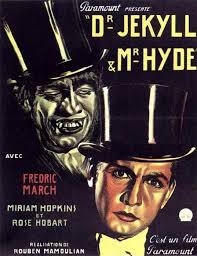“Thus it is not to be a detachment or redemption of the inferior function, but an acknowledgement of it, a coming to terms with it, that unites the opposites on the path of nature” – C.G. Jung
Jungian analyst, Vanessa Prins has been reviewing how type orientations relate to lifelong development. In the last article, we saw that during the individuation process, one needs to start integrating the inferior type by establishing a relationship with the soul (the unconscious contra-sexual aspects of the psyche that Jung termed animus or anima). In this article, she looks at the how the inferior type is also closely tied to another of Jung’s concepts: the shadow. As always, we welcome your comments and suggestions. jgj
The Inferior Type and the Shadow
 The inferior types are those orientations to conscious awareness that have been less frequently relied upon. The shadow is like an inferior type, but larger.
The inferior types are those orientations to conscious awareness that have been less frequently relied upon. The shadow is like an inferior type, but larger.
The shadow contains any disposition that has been repressed or ignored for being inconsistent with the established ego identity. For example, we might think of ourselves as helpful, leaving the selfish side of ourselves in “shadow.”
“The shadow is merely somewhat inferior, primitive, unadapted and awkward; not wholly bad. It even contains childish or primitive qualities which would in a way vitalize and embellish human existence.” (CW, par. 134)
Jung saw the human psyche as a self-regulating system. The soul and the shadow play compensatory roles to ego consciousness. A dynamic interplay between opposites–persona and soul, conscious and unconscious, ego and shadow, superior and inferior types–is a central aspect of Jung’s model of the psyche.
We all tend to rely on certain psychological types more than others, leaving opposing types in the less accessible shadow. Ideally these opposing shadow types serve as healthy counterparts to the dominant types, but sometimes they are unduly repressed.
“If the shadow type is ignored or demeaned, the potentialities repressed by the [conscious] attitude will make themselves indirectly felt by disturbing the conscious conduct of life. When the disturbance reaches a definite pitch, we speak of neurosis.” (CW 6, par. 587)
For example, a man whose dominant type is extraverted feeling might have introverted thinking as the inferior type. He would likely have difficulty accessing his abstract thinking function. It would tend to arrive in a rather primitive, infantile, or slow way. If introverted thinking became unduly repressed, he might be plagued by negative thoughts or obstinately defend philosophical ideas expressed by others.
As individuation integrates the shadow, it also engages the inferior types, lifting them up to conscious experience. Individuation is a journey towards wholeness. By engaging our shadow and inferior types, we enrich our lives and discover deeper, vivifying meaning.
“It may well be, as I have said, that beneath the neglected functions there lie hidden far higher individual values which . . . are of greatest value for individual life, and therefore vital values that can endow the life of the individual with an intensity and beauty he will vainly seek in his collective function.” (CW 6, par. 113)
